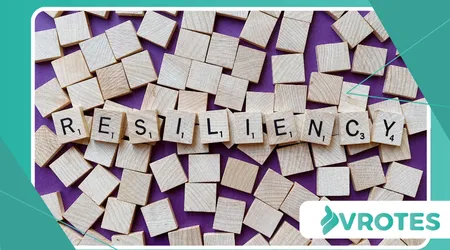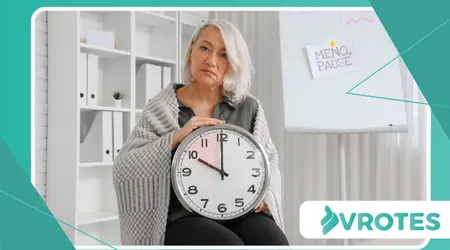Building Emotional Resilience in the Menopause Transition

Building emotional resilience during the menopause transition is a journey that many women embark on, often with a mix of anticipation and apprehension.
Anúncios
This pivotal life stage, far from being just a biological shift, profoundly impacts emotional well-being.
It reshapes perceptions and experiences in ways that demand inner strength and adaptive strategies.
The journey through menopause is deeply personal. Each woman experiences a unique constellation of symptoms and emotional responses.
Understanding this individual variation is crucial. It underscores the need for tailored approaches to emotional wellness.
Anúncios
Navigating hormonal fluctuations can feel like a ride on a turbulent sea. These shifts can trigger unexpected mood swings and heightened sensitivity.
Acknowledging these physiological underpinnings helps normalize the experience.
Beyond the physical, menopause often brings significant life changes.
Children may leave home, careers might shift, and the very definition of self can evolve. These external factors intertwine with internal processes.
Emotional resilience is not about avoiding distress. It’s about developing the capacity to recover from it. It’s about bending without breaking, much like a flexible reed in a strong wind.
Understanding the Emotional Landscape of Menopause
The emotional landscape of menopause is rich and varied. It encompasses a spectrum of feelings. These range from irritability and anxiety to profound shifts in self-perception.
Many women report increased anxiety during perimenopause. This often manifests as heightened worry or even panic attacks. It’s a common, albeit challenging, symptom.
Depressive symptoms can also emerge. These may include persistent sadness, loss of interest, and fatigue. These feelings are more than just “feeling down.”
Sleep disturbances are a major culprit. Insomnia exacerbates mood dysregulation and reduces coping capacity. A tired mind struggles to manage emotional challenges effectively.
Read here: Tips to Reduce Stress Without Adding Time to Your Day
Irritability often stems from a combination of hormonal shifts and sleep deprivation. Small annoyances can become overwhelming frustrations. Patience can wear thin.
Cognitive changes, often referred to as “brain fog,” can also impact mood. Difficulty concentrating or remembering things can lead to feelings of inadequacy. This can fuel anxiety.
Body image can be a sensitive area. Changes in weight distribution and skin elasticity can affect self-esteem. Society’s emphasis on youthfulness often adds pressure.
Some women experience a sense of loss. This might relate to fertility or a previous self-identity. Acknowledging these feelings is an important first step.
Conversely, some women find liberation. They embrace a newfound freedom from menstruation and childbearing. This can bring a sense of empowerment.
The emotional tapestry of menopause is complex. It requires a nuanced understanding and compassionate self-reflection. There’s no single “right” way to feel.

Practical Strategies for Building Emotional Resilience
Building emotional resilience during this transition demands proactive engagement.
It involves a multi-faceted approach addressing both mind and body. Small, consistent efforts yield significant results over time.
Prioritizing Self-Care
Self-care isn’t a luxury; it’s a necessity. It forms the bedrock of emotional well-being. This includes adequate rest, nourishing food, and regular movement.
Sufficient sleep is paramount. Establishing a consistent sleep routine can mitigate insomnia. Creating a calm bedtime environment also helps.
See how interesting: Guided Meditation Scripts for Hormonal Turmoil
Nutritional choices play a vital role. A balanced diet supports hormone regulation and overall mood. Limiting processed foods and caffeine can be beneficial.
Physical activity releases endorphins, natural mood boosters. Even moderate exercise, like brisk walking, can significantly improve outlook. Find activities you enjoy.
Mindfulness practices can ground you. Meditation, deep breathing, or yoga can reduce stress. They cultivate present-moment awareness, easing anxiety.
Journaling offers an outlet for emotions. Expressing feelings on paper can provide clarity. It helps process difficult experiences without judgment.
Fostering Strong Connections
Social connection acts as a powerful buffer against emotional distress. Reaching out to friends and family provides support. Sharing experiences normalizes feelings.
Joining support groups can be invaluable. Connecting with other women navigating menopause fosters a sense of community. Shared understanding reduces isolation.
Maintaining existing relationships is crucial. Nurture those connections that bring joy and comfort. Make time for meaningful interactions.
Consider new social activities. Pursuing hobbies or volunteering can expand your social circle. This introduces fresh perspectives and positive interactions.

Embracing a Growth Mindset
Adopting a growth mindset transforms challenges into opportunities. View menopause not as an ending, but as a new beginning. This perspective shifts focus.
Learning new skills can boost confidence. Engaging in intellectual pursuits keeps the mind sharp. It reinforces a sense of purpose and accomplishment.
Read more: High-Protein Breakfast Ideas to Combat Menopausal Fatigue
Setting realistic expectations is key. Not every day will be easy. Acknowledge setbacks without dwelling on them. Progress, not perfection, is the goal.
Practice self-compassion. Treat yourself with the same kindness you’d offer a friend. Avoid harsh self-criticism during difficult moments.
Reframing negative thoughts is a powerful tool. Challenge unhelpful assumptions and beliefs. Replace them with more balanced and realistic perspectives.
Seeking Professional Support
Sometimes, external help is needed. There’s no shame in seeking professional guidance. Therapists, counselors, or menopause specialists can offer support.
Cognitive Behavioral Therapy (CBT) is highly effective. It helps identify and change negative thought patterns. CBT can significantly reduce anxiety and depression.
Hormone Replacement Therapy (HRT) may be an option. For some, it alleviates severe physical symptoms that impact mood. Discuss this with a qualified healthcare provider.
A menopause specialist can provide tailored advice. They understand the nuances of this transition. They can guide you through various treatment options.
Don’t hesitate to reach out if symptoms are overwhelming. Professional help can provide tools and strategies for navigating this time successfully. It’s an investment in your well-being.
The Power of Perspective
Consider a river. During its journey, it encounters rapids and calm stretches.
The river doesn’t resist the rapids; it flows with them, finding its path around obstacles. Similarly, building emotional resilience means flowing with the changes of menopause, adapting rather than fighting.
It’s about navigating the currents with strength and grace, knowing that calm waters will follow.
Sarah’s Journey
Sarah, 52, found herself overwhelmed by night sweats and debilitating anxiety. She felt her former energetic self slipping away.
Instead of succumbing to despair, she proactively sought help. She started with her primary care physician, who referred her to a menopause specialist.
Together, they explored HRT and implemented lifestyle changes. Sarah also joined a local women’s walking group, finding solace and connection.
Slowly, the cloud began to lift. She learned to embrace moments of calm and recognized her progress, no matter how small. Her resilience grew from consistent, deliberate action.
Elena’s Transformation
Elena, 49, experienced significant mood swings and a loss of interest in her hobbies. She felt she was losing her spark.
Realizing she needed a shift, she enrolled in an online photography course, something she’d always wanted to do.
This new challenge ignited her creativity. She also dedicated 15 minutes each morning to meditation, finding a sense of peace.
Elena started prioritizing her friendships, scheduling regular coffee dates.
These small, intentional steps helped her rediscover joy and build a newfound sense of purpose. She realized menopause was not an ending, but a new canvas for her life.
The Broader Impact: Societal Views and Self-Acceptance
Societal narratives around aging and menopause often contribute to the emotional burden.
We are bombarded with messages that equate youth with vitality and beauty. This can lead to internalized ageism and a sense of decline.
However, a shift in perspective is crucial. Menopause can be a time of empowerment. It marks a transition to a new phase of life, often accompanied by wisdom and freedom.
Globally, approximately 1.5 million women enter menopause each year.
This makes it a universally experienced, yet often individually isolating, event. This statistic underscores the collective journey many women are on.
| Aspect of Menopause | Emotional Impact | Resilience Strategy |
| Hot Flashes | Irritability, Embarrassment | Mindfulness, Layered Clothing |
| Sleep Disturbances | Fatigue, Anxiety, Low Mood | Sleep Hygiene, Relaxation Techniques |
| Mood Swings | Frustration, Sadness, Anger | Self-Compassion, Journaling |
| Cognitive Fog | Anxiety, Self-Doubt | Brain Games, Organization |
| Body Changes | Body Image Issues, Self-Esteem | Self-Acceptance, Healthy Lifestyle |
Self-acceptance becomes a cornerstone of building emotional resilience. It’s about acknowledging the changes without judgment. It’s about embracing who you are becoming, not just who you were.
Challenging negative stereotypes empowers women. It encourages a more positive and realistic view of this life stage. Menopause is a natural process, not a disease.
This period can be an opportunity for profound personal growth. It can be a time for redefining priorities and living authentically.
It’s about shedding old expectations and embracing new possibilities.
Embracing Your Resilient Self
The menopause transition is undeniably a significant life event, replete with both challenges and opportunities.
While hormonal shifts and physical symptoms can test your emotional equilibrium, they also present a unique chance for growth.
By actively engaging in self-care, nurturing connections, embracing a growth mindset, and seeking support when needed, you are not merely coping; you are actively building emotional resilience.
You are cultivating an inner strength that will serve you not only through menopause but throughout the rest of your life.
Frequently Asked Questions
This isn’t about simply surviving; it’s about thriving, embracing your evolving self with wisdom and grace. What if this transition isn’t an ending, but rather the most powerful beginning yet?
What are the earliest signs of emotional changes during perimenopause?
Many women report increased anxiety, irritability, and uncharacteristic mood swings as early emotional indicators during perimenopause. Sleep disturbances and heightened stress sensitivity are also common.
Is depression during menopause common, and what should I do?
Yes, depressive symptoms are common during menopause.
If you experience persistent sadness, loss of interest, or significant changes in sleep and appetite, it’s crucial to consult a healthcare professional.
They can assess your symptoms and recommend appropriate support, such as therapy or medication.
Can exercise really help with emotional resilience during menopause?
Absolutely. Regular physical activity releases endorphins, which have mood-boosting effects.
It can also improve sleep quality, reduce stress, and provide a sense of accomplishment, all of which contribute significantly to emotional resilience.
What is the role of diet in managing menopausal emotional symptoms?
A balanced diet, rich in fruits, vegetables, whole grains, and lean proteins, can support overall well-being and hormone balance.
Limiting processed foods, excessive caffeine, and alcohol can help stabilize mood and reduce symptoms like anxiety and sleep disturbances.
When should I consider seeking professional help for emotional difficulties during menopause?
You should consider seeking professional help if your emotional symptoms are significantly impacting your daily life, relationships, or overall well-being.
This includes persistent low mood, overwhelming anxiety, panic attacks, or thoughts of self-harm.
A therapist, counselor, or menopause specialist can provide valuable support and strategies.
++ Psychosocial factors promoting resilience during the menopausal transition
